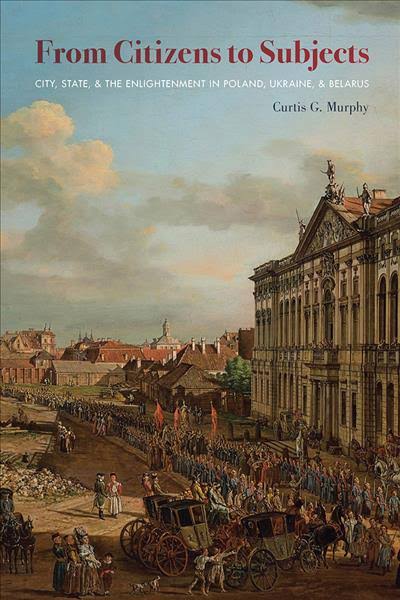
Curtis Murphy
Assistant Professor in History, Philosophy and Religious Studies Department at Nazarbayev University
When did you first develop an interest in Slavic, East European and Eurasian Studies?
Reading the historical sources of East Central Europe in graduate school first opened my eyes to the enormous discrepancy between the absent or dismissive treatment of this region in textbooks and even serious monographs on the one hand, and the rich reality of democratic participation and self-government depicted by historical actors of even the lowest social standing on the other. The real breakthrough moment for me came in reading the seventeenth-century diary of Bazyli Rudomicz who served as mayor and rector of the academy in Zamość. Here was someone who, according to all conventional wisdom, should have been at the bottom of the food chain. He was a burgher in a private town in Poland-Lithuania, where according to Rousseau “townspeople count for nothing,” yet he really participated in politics and the vita activa in the Arendtian sense; he electioneered, led debates in city councils, and sued every person who even thought about infringing on his rights. Once I began digging a bit deeper, I found that Rudomicz’s doubtlessly self-aggrandizing story was hardly unique. Why, I wondered, does a region with political traditions and values so similar to those now celebrated by the European Union frequently appear as the embodiment of backwardness and moral turpitude? The answer lies partially in the linguistic difficulties one has to overcome to study East Central Europe, but a larger problem is legacy of nineteenth century and Communist-era historiography, which found the motifs of backwardness and anarchy convenient justifications for the status quo. I think the region itself has suffered a bit from auto-colonization, absorbing the various empires’ truisms as its own common sense, and this legacy continues today in uninformed commentary about the region’s “lack of democratic traditions.” If nothing else, I hope to help combat this particular stereotype, which so frequently serves to explain away complexities.
How have your interests changed since then?

What is your current research/work project?
I am now working a history of the Confederacy of Bar that will attempt to contextualize this relatively obscure civil war from 1768-1772 (the antecedent to the first partition of Poland-Lithuania) within the history of eighteenth-century diplomacy and public perception. Of particular interest to me was the attempt by both Polish-Lithuanian confederates and Russian diplomats to shape European public opinion about the conflict through contacts with Enlightenment era luminaries and paid articles in the burgeoning press. I am also interested in showing how the Confederacy played a role in larger global affairs by highlighting connections to the Russo-Turkish War, the Pugachev Uprising and the American Revolutionary War.
What do you value about your ASEEES membership?
I find the annual convention extremely profitable since there are only a few people who study pre-modern Eastern Europe, and I have met most of them in this way. I am happy to say that Poland-Lithuania will be represented in Boston this year as well.
Besides your professional work, what other interests and/or hobbies do you enjoy?
I love to bicycle, and it is extremely easy for me to do so as Astana, where I live, is one of the flattest cities on Earth with an every-growing number of bike lanes.